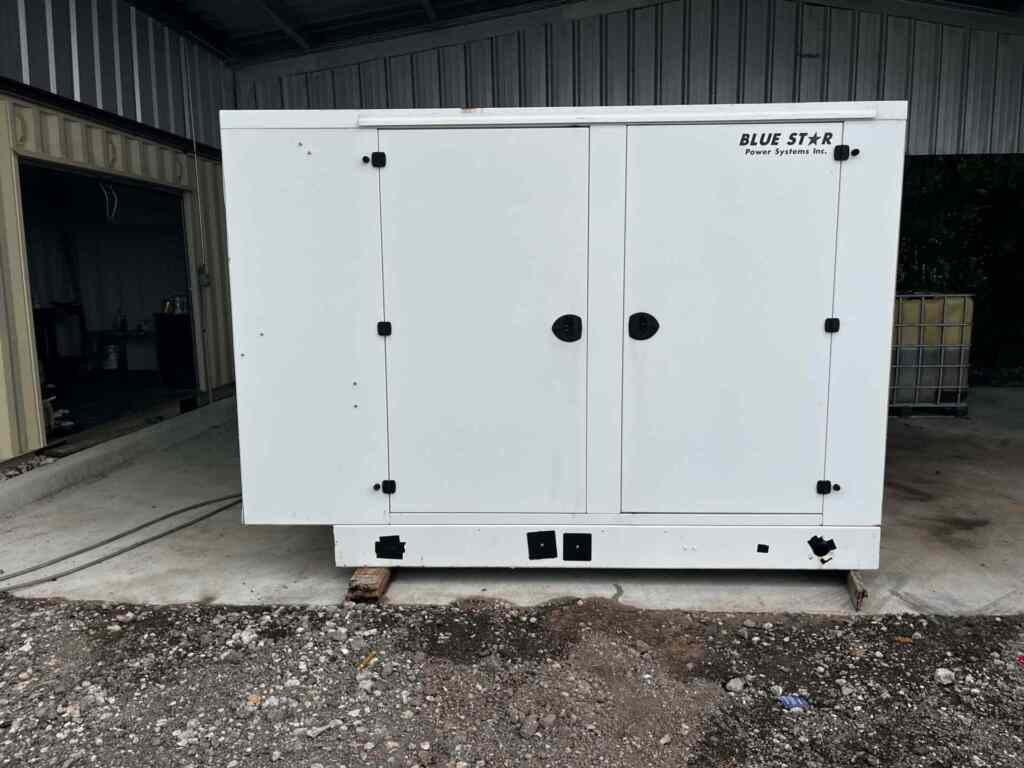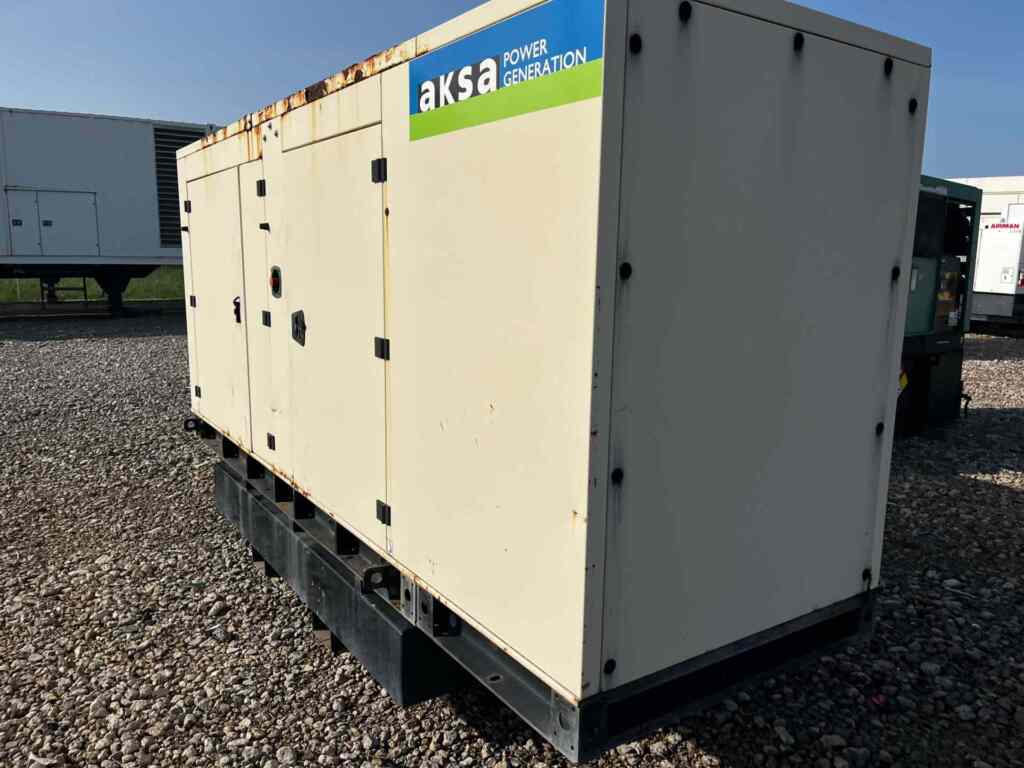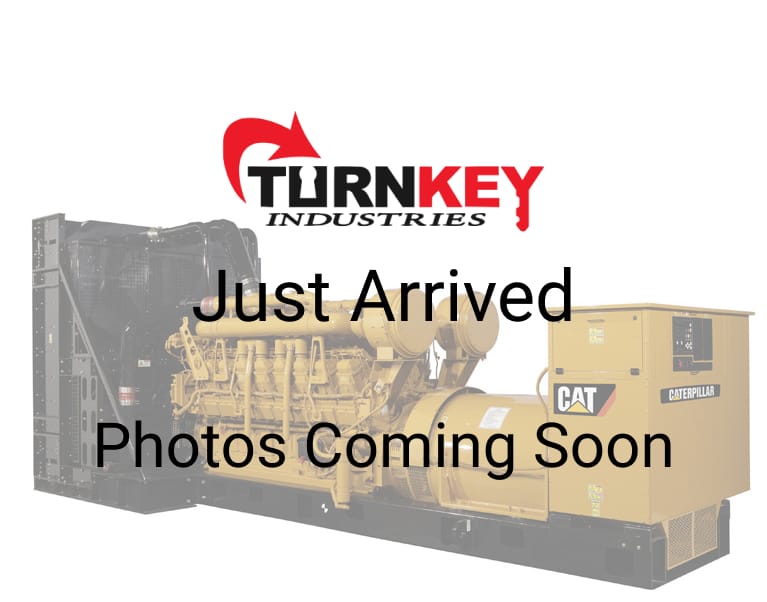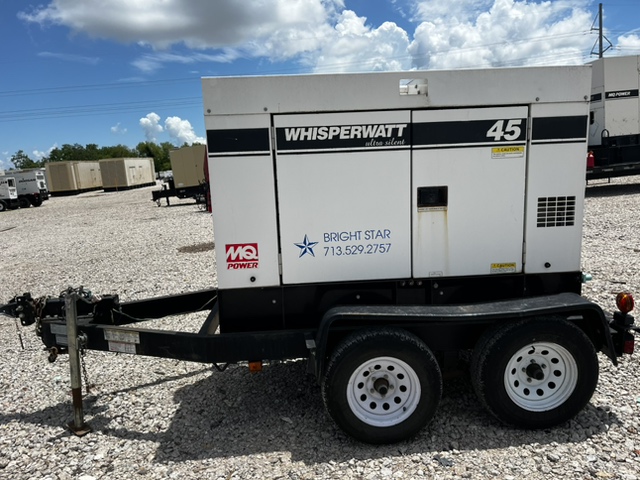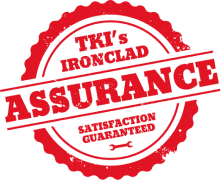Generators are complex machines with many moving components. These components produce electricity by converting mechanical energy from an external source into electrical energy as the output. Keep reading to learn how industrial generators work and how each of an industrial generator’s parts plays a role in ensuring a generator’s maximum power output.
The 7 Core Industrial Generator Parts
Industrial generators have no rival if you are looking for a reliable power source over the long term. Their ability to provide a near-constant supply of power during natural disasters or other power outages is impressive. Many industries rely on industrial generators when grid power fails to keep critical equipment up and running. Although generators can run off different types of fuel, industrial generator parts are very similar – no matter the size or brand of the generator you purchase.
What are the core components of industrial generators? To help you better understand how industrial generators work, we’ve assembled a list of the seven main components of an industrial generator, along with their functionalities.
- Engine – the engine inputs mechanical energy. It can run on many different fuel types, including propane, natural gas, or diesel. Fuel type is the core difference between generator types.
- Alternator – the alternator produces electrical output by working with the generator’s rotor and plastic housing to generate electricity. This is a direct result of the movement between the magnetic and electrical fields inside the generator.
- Fuel system – the fuel system converts the fuel into electricity. The fuel system consists of a fuel pump, a ventilation pump, and a fuel injector, all of which work together to process the fuel and turn it into usable energy.
- Voltage regulator – this industrial generator part controls the output voltage of a generator. The voltage regulator ensures that the generator produces a stable and safe voltage output that meets the load requirements.
- Cooling and exhaust – the cooling system ventilates excess heat. This system removes heat from a generator’s engine so that it can function properly. The exhaust system removes toxins and poisonous chemicals produced by the generator and vents them safely away from enclosed areas.
- Lubrication – the lubricating system consists of a pump and basin, which stores oil. The pump sprays oil over the moving parts of the generator, keeping it in good working order during high-stress operations.
- Battery – the battery provides power to the starter motor, which allows the generator to start. But it also provides power for lights and other electrical components on the generator.
Large-Scale Industrial Generators And How They Work
An electric generator is a device that converts mechanical energy obtained from an external source (fuel) into electrical energy as the output. The seven main industrial generator parts create a comprehensive system that facilitates energy production and distribution when they work together. Keep reading to learn more!
- When the generator turns on, the battery starts the fuel system that pumps fuel to the engine.
- The engine then delivers power to the alternator, which in turn produces electromagnetic induction.
- The voltage regulator ensures the voltage and amperage of the AC do not vary according to the speed of the engine. The resulting electricity is harnessed to supply power where it is needed.
- Once an electrical current is produced, the cooling system is activated. This system regulates the waste heat from the generator’s engine and alternator. At the same time, the exhaust system is triggered, pumping out exhaust gases away from the engine (and any bystanders).
The Importance Of Industrial Generator Maintenance
Despite the reliable reputation of industrial generators, they still need regular preventive maintenance to function efficiently and safely. You don’t want to be left in the dark during a power outage or lose money when your operations are shut down because your generator is not working. Here are seven reasons industrial generator maintenance is beneficial to your bottom line.
- Generator maintenance helps catch and repair basic generator problems before they become big problems. Many generators will not immediately show symptoms of failure until the generator is unable to run, most often during an emergency. Regular preventive maintenance enables your technician to identify problems with your generator and resolve them before they get any worse.
- Generator maintenance ensures proper functionality. In addition to conducting a visual inspection, experienced technicians will check a generator’s engine speed, fluid and oil levels, oil and air filters, belts and other connections, cooling system, battery, and exhaust system to ensure that your generator is running at peak performance.
- Generator maintenance prevents carbon monoxide generation and poisoning. The internal combustion engine of a generator that is not regularly maintained will create carbon monoxide, which is fatal if it is inhaled. Routine maintenance by a qualified technician can prevent this from happening.
- Generator maintenance increases your generator’s efficiency. Proper maintenance means that all the parts of your generator are checked and cleaned from potentially damaging dirt and debris. Each industrial generator part is then tested to make sure that they are working as intended.
- Generator maintenance helps prevent fuel problems. Generators running on diesel need to have the diesel fuel tank emptied and refilled at least twice every year to prevent it from deteriorating. Regular maintenance ensures that the fuel levels are checked, and the supply is changed, thus eliminating any problems.
- Generator maintenance ultimately saves you money. If you choose to ignore regular maintenance, you may save a little money. However, this could lead to larger, and more expensive, problems down the road. It’s in your best interest to protect your investment by performing basic maintenance tasks at the suggested intervals. The alternative could be a very costly repair – or even having to replace the entire generator with a new one!
- Generator maintenance prolongs a generator’s lifespan. Unmaintained generators normally have shorter lifespans. Protect your investment by performing industrial generator maintenance at regular service intervals so that your generator functions smoothly for years to come.
Protecting Your Industrial Generator For Years To Come
Industrial generators are fascinating machines, with complex components that work together to generate electricity. Understanding how industrial generators work is important, but even more so is adhering to a routine industrial generator maintenance schedule to protect your investment. From hospitals to data centers and construction sites to remote mining operations, industrial generators power our economy – keeping the lights on and the wheels of industry turning. Learn more about the best industrial generator for your business today!
 Turnkey Industries offers a variety of high-capacity
Turnkey Industries offers a variety of high-capacity 